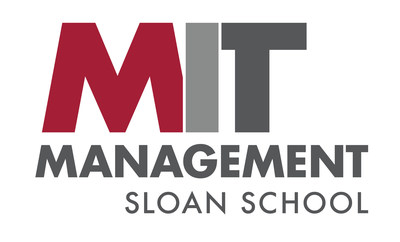|
12.05.2020 21:05:00
|
MIT Sloan research shows adaptive networks promote better collective intelligence
CAMBRIDGE, Mass., May 12, 2020 /PRNewswire/ -- In times of crisis, like the current COVID-19 pandemic, businesses need to make smart decisions about their future. An important question is: Who should provide input to make those decisions? A recent study by MIT Sloan School of ManagementProf. Abdullah Almaatouq and Alex `Sandy' Pentland, director of MIT's Connection Science program and the MIT Media Lab Human Dynamics group, cautions against using static organizational charts to make decisions. Instead, their study finds that changing the individuals in charge based on the nature of the issue leads to better collective intelligence and smarter decisions.

"In the current crisis, it is not business as usual. Most organizations will be different a year from now, so leaders need input from different people. You can call them your skunkworks or shadow cabinet – but they are not the people in your org chart," says Pentland. "By listening to the right group of people, you can end up smarter than the smartest person in the group."
Almaatouq notes, "Our study reinforces the idea that groups can achieve a higher level of intelligence and reach better decisions than individuals alone. The key is recognizing that the group may need to change based on the problem. Managers need to move away from a static hierarchy to systems with more ability to change in response to feedback."
Their paper, "Adaptive Social Networks Promote the Wisdom of Crowds," was published in PNAS.
The co-authors test the hypothesis that adaptive influence networks may be central to collective human intelligence with two pre-conditions: feedback and network plasticity. "The conditions under which groups outperform their individual members has been the focus of many studies. Our study looks at the conditions under which the interaction network within a group can adapt to leverage the dispersion of individual abilities and promote collective intelligence," explains Almaatouq.
"We found that dynamic networks could adapt to biased and nonstationary environments, inducing individual and collective beliefs to become more accurate than the independent beliefs of best-performing individuals," he says. "We also showed that the advantages of adaptive networks are amplified by high-quality performance feedback. Taken together, our results suggest that details of interpersonal communication -- both in terms of the structure of social interactions and the mechanism of its evolution -- can affect the ability of the system to promote adaptive collective intelligence."
This means, notes Almaatouq, that managers should move away from static organizational charts and decision-making procedures, especially in times of crisis. "Organizations need to change the structure of how information is communicated and provide feedback on the quality of the structure and decisions. This allows them to adapt to changing environments and make better decisions."
Pentland adds, "It's a common pitfall to follow your organizational charts to make decisions, but our research shows that you need different people to address different problems to make better decisions."
The MIT Sloan School of Management is where smart, independent leaders come together to solve problems, create new organizations, and improve the world. Learn more at mitsloan.mit.edu.
For further information, contact: | ||
Paul Denning | or | Patricia Favreau |
Director of Media Relations | Associate Director of Media Relations | |
(617) 253-0576 | 617-253-3492 | |
denning@mit.edu | pfavreau@mit.edu |
![]() View original content to download multimedia:http://www.prnewswire.com/news-releases/mit-sloan-research-shows-adaptive-networks-promote-better-collective-intelligence-301057941.html
View original content to download multimedia:http://www.prnewswire.com/news-releases/mit-sloan-research-shows-adaptive-networks-promote-better-collective-intelligence-301057941.html
SOURCE MIT Sloan School of Management
 Der finanzen.at Ratgeber für Aktien!
Der finanzen.at Ratgeber für Aktien!
Wenn Sie mehr über das Thema Aktien erfahren wollen, finden Sie in unserem Ratgeber viele interessante Artikel dazu!
Jetzt informieren!